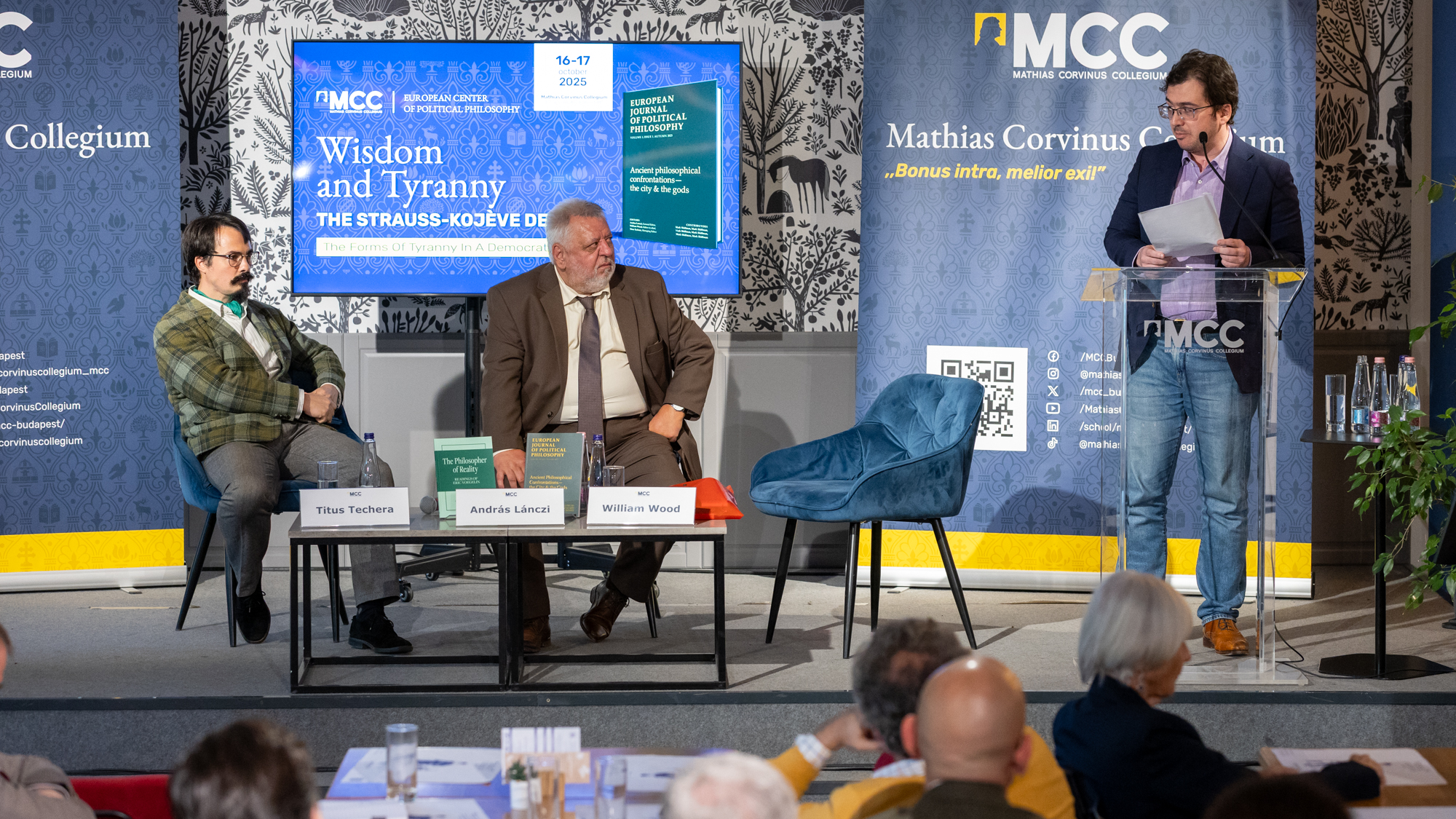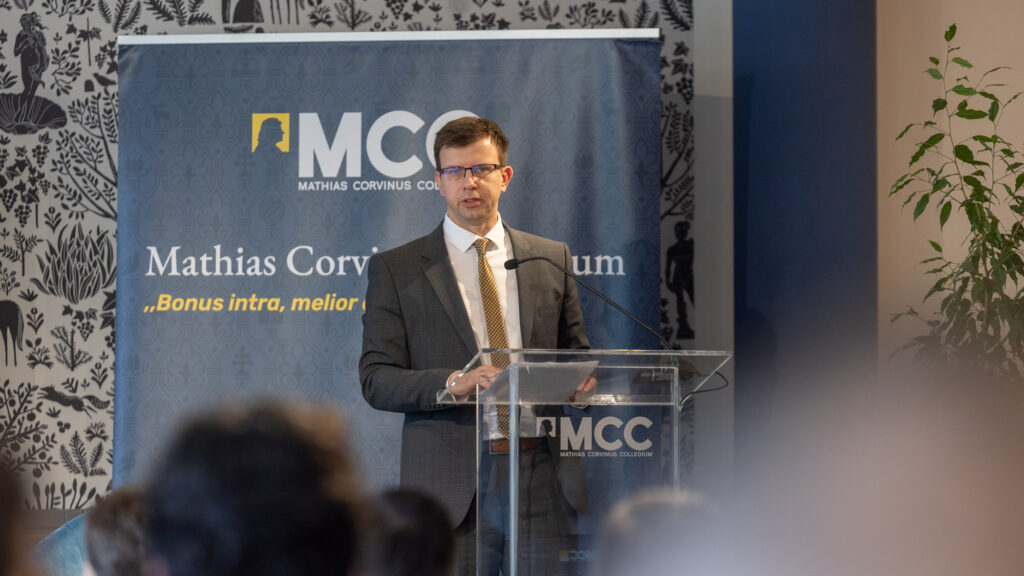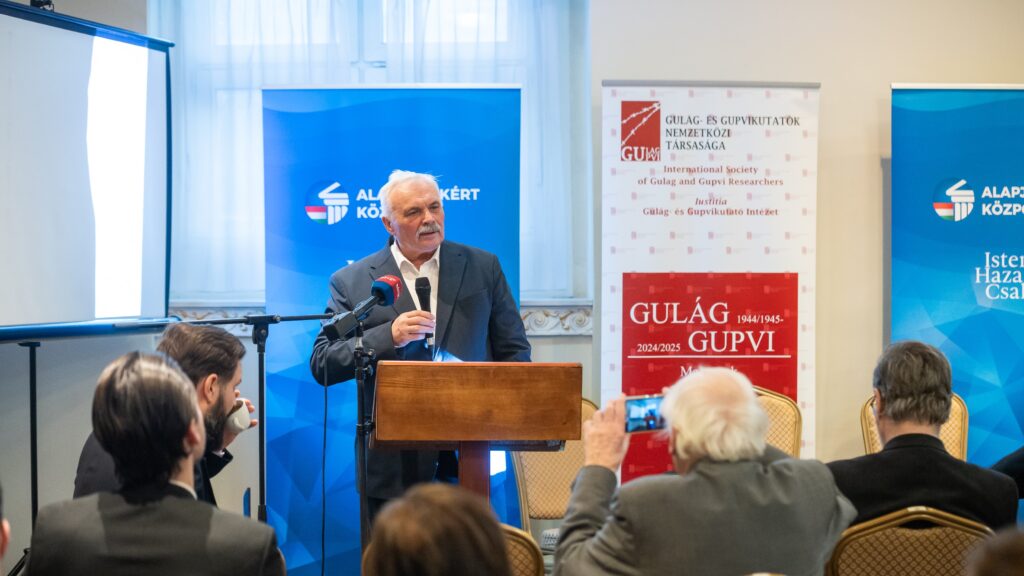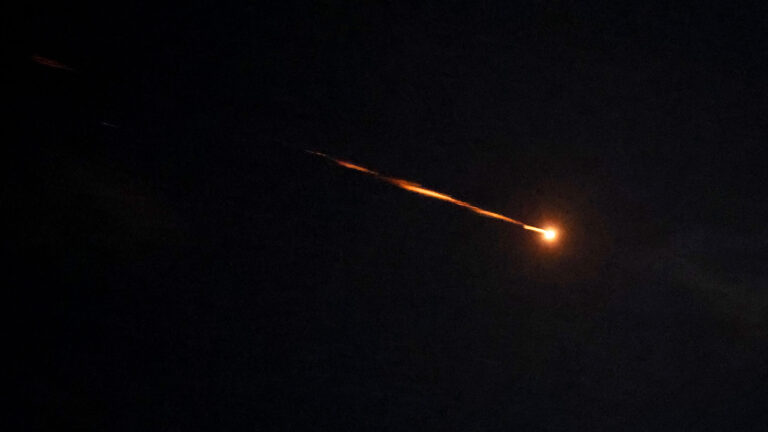The Mathias Corvinus Collegium (MCC) is launching its new philosophical journal European Journal of Political Philosophy. The new publication’s editors spoke at an event held at MCC’s Budapest campus on Thursday, 16 October. However, before the two men in charge of the journal took the stage, Director of the European Center of Political Philosophy at MCC András Lánczi and Professor Emeritus at the University of Erlangen Tilo Schabert gave their remarks.
Mr Lánczi spoke about the institution of MCC. He shared that it started as a small, private operation that merely provided aid and extracurricular opportunities to about 60–70 college students in Hungary in the 1990s. Then, the speaker continued, the Hungarian government decided to get behind the project a few years ago and take it to the national level—he stressed that by ‘national’, he also means ethnic Hungarians living in the other countries of the Carpathian Basin. Mr Lánczi also told the audience that by now, MCC has thousands of students, both in university and still in high school. He then announced the Collegium’s latest project, the aforementioned European Journal of Political Philosophy.
Professor Schabert focused most of his speech on German-American philosopher Eric Voegelin. He talked about how Voegelin had to flee Nazism from 1930s’ Germany to the United States, and therefore was always very interested in the origins of totalitarianism, and how he popularized the term ‘political religions’. Voegelin and another philosopher discussed in the evening, the Frenchman Alexandre Kojève, were aware of each other’s works, and took opposite sides of the relationship between reason and faith, the speaker pointed out, with Voegelin taking the more pro-faith side. Voegelin was also very interested in the ethereal and studied gnosticism and even magic extensively, Professor Schabert added. He also quoted the philosopher saying: ‘Reality is a story told by God,’ the exact meaning of which, as he admitted, he does not understand.
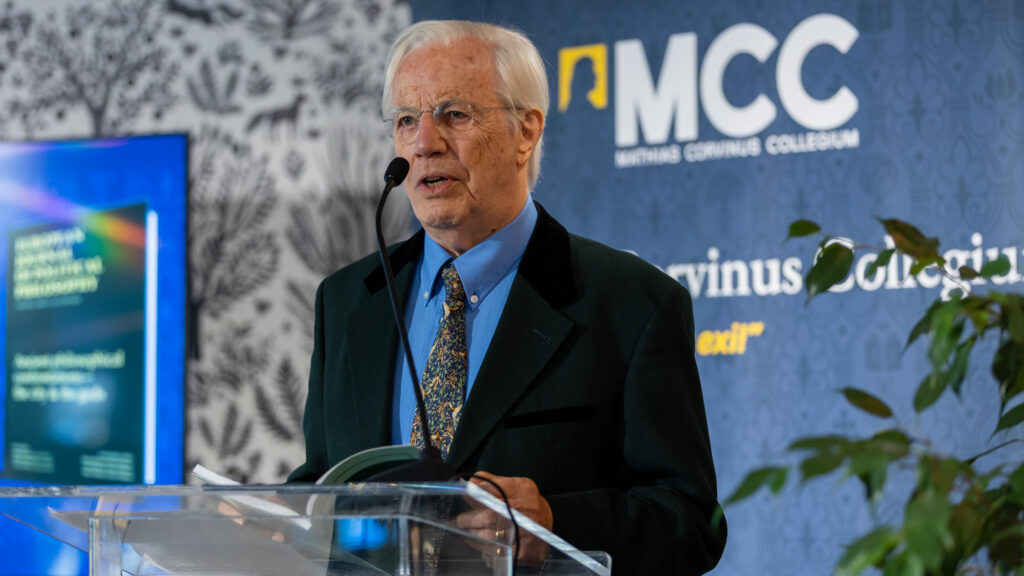
Answering a question by Mr Lánczi, Professor Schabert stressed that Voegelin was not against modernism as a whole, only parts of it. He elaborated that the philosopher greatly admired the ideas that created the American Republic, inspired by the likes of John Locke and Thomas Paine, but was constantly criticizing the progressivist thinkers of that era, such as Turgot, Comte, and Condorcet. Voeglin also had a divided view on technology, as we learnt from the professor: he frequently flew on planes, but never drove a car or used the computers emerging near the end of his life. Professor Schabert described him as someone with a fiery temperament who sometimes forgot his scholarly style when criticizing one of his peers.
Chief Editor William Wood of the new European Journal of Political Philosophy and Managing Editor Titus Techera of European Journal of Political Philosophy spoke next.
Mr Wood said that the idea behind the new philosophical journal was to create a friendly environment for Straussian thought, referring to 20th-century political philosopher Leo Strauss. Just like Voegelin, Strauss too emigrated from Germany to the United States. The speaker noted that he has had a bad reputation among modern academics, although it is not as bad as it was 20 years ago, he pointed out. However, new material on Strauss’s work is still ‘difficult to publish’, as he put it. Mr Wood would also like to have the contributors to his journal view old philosophical materials as ‘a source for knowledge, not objects to criticism’. On that note, he lamented the condescending attitude his fellow academics often display to the thinkers of the past, even towards as well-known figures as Aristotle.
Mr Techera started his piece with the sweeping statement that he knows that ‘academia is collapsing’, as it will run out of students, money and even ‘reasons to be an academic’ soon. Reflecting on what his colleague just stated before him, he said: ‘If you are looking for someone who hates Aristotle, just go to a philosophy department.’ However, Mr Techera also believes that even in a ‘civilizational crisis’ that we are now, or humanity was in the 20th century, it is still important to study and write about philosophy, seeking answers to the most profound questions, such as ‘How should I live?’ or ‘To what extent can I achieve self-knowledge?’.
He then shared that the topic of the next day’s lectures at Day 2 of this event will be about the 20th-century debate on the nature of totalitarianism and tyranny between Leo Strauss and Alexandre Kojève. As for European Journal of Political Philosophy, he announced that the next issue will focus on the works of Friedrich Nietzsche. The editor also shared that the journal is looking for submissions from the public, and the issues will be available online for free some time after the print version’s publication.
Related articles:

